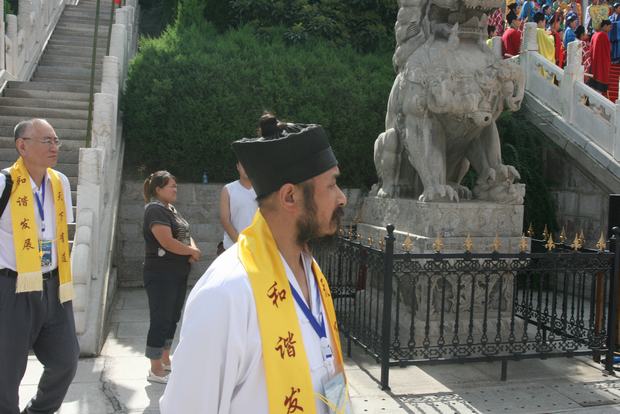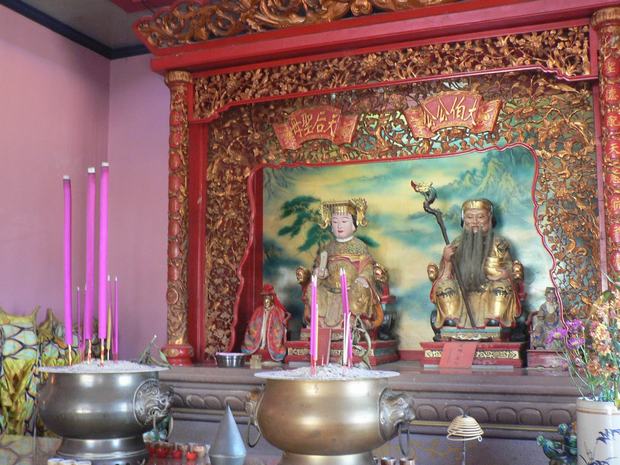Taoism
Taoism is a typically traditional religion in China with a history of more than 18 hundred years since the second century A.D. It advocates the worship of natural objects and ancestors as was practiced since time immemorial and had various factions in the history. It is difficult to calculate the exact number of Taoist believers because there are no formal ceremonies or specific regulations concerning the admission to Taoism. At present, there are more than 15 hundred Taoist temples in China with over 25 hundred male and female Taoists there.
At the very beginning, there were two sects within Taoism: Fangxian Tao (square immortals) and Huanglao Tao (Yellow Emperor and Lao Zi).
Fangxian Tao was formed in about the 4th century BC, and was widely accepted by the upper-class society in today's Beijing, Hebei Province and Shandong Province, etc. Its aim was to get longevity and become immortal with the help of ghosts and gods. The immortal theory of Fangxian Tao became the basic belief in later Taoism, and its magic arts were later inherited and developed by Taoism. Fangxian Tao was combined with Huanglao school of thought afterwards.
Huanglao Tao is the mainstream of Huang (Yellow Emperor) and Lao (Lao Zi, a famous philosopher, whose masterpiece the Dao De Jing (Classic of the Way and Virtue) is wide-spread in China.) school of thought, and it is a combination of the philosophy in emperors' ruling, Wuxing (five elements: metal, wood, water, fire, earth) of Yin (negative) and Yang (positive), and the immortal theories. Although like Fangxian Tao, it had neither systematic doctrines nor formal religious organization, it was a crucial phase in the formation of Taoism, and served as the precursor of Taoism.
Taoism and Social Ethics
Taoist ethics is primarily linked with longevity. Since everyone is eager for longevity, Taoism takes this as a tool to bring up many requests to people. In fact, this is where Taoism is in common with other religions in attaining their goals through cherishing ideals, just like Elysium in Buddhism and Heaven in Christianity, etc.

As Taoism preaches, one must nicely obey the social ethics for the purpose of longevity. Taoism emphasizes that in addition to keeping away from bad deeds and helping others, one must also be loyal to his country, show respect to his parents, and avoid the selfishness of human nature. Meanwhile, Taoism also warns that one will suffer from a reduced life span or an early death once he commits evil.
Such kind of Taoist thought is the authentic Chinese ethics. In terms of the effect, to some extent Taoist theories have a positive influence on Chinese society.
Recommended China Religion Tour about Taoism:
15-day China Taoism Pilgrimage Adventure



